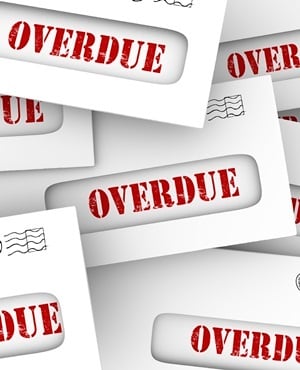
Johannesburg - SA could very well be on the cusp of a recession, and the majority of consumers are only one or two steps away from disaster or debilitating debt. Scary statistics from both an economist and a local financial wellness study point to the fact that it’s high time to start keeping a sharper eye on your finances if you haven’t done so already, writes Neesa Moodley
According to the SA Household Financial Wellness Index released by Momentum and Unisa earlier this week, almost 70% of households do not have a financial plan, and only 3.3% have a comprehensive financial plan. As much as 43% feel they are totally unprepared financially for retirement, while 85% do not have a will.
Kevin Lings, an economist at Stanlib, says South Africa has become locked in a low-growth environment, partly as a result of electricity shortages, but also due to regular bouts of labour market disruptions, policy uncertainty, a slump in private sector investment spending, a lack of job creation, low commodity prices, a slump in world trade, and low business and consumer confidence.
“While there is an increased risk of recession in South Africa over the next 18 months, this is still not our base case. Instead, we anticipate that South Africa will continue to experience very low growth, unless there is a meaningful increase in the number of formal sector job losses; in which case South Africa would almost certainly experience an outright recession,” he warns.
Danie van den Bergh, brand manager at Momentum, likened the financial health of South Africans and the country to sport.
“In sport, we know that when an increasing number of individual players consistently perform at a high level, it improves the chance of the team winning consistently. If more individuals become financially well, it will improve the South African economy and have a positive impact on all citizens.
Financial wellness is not a one-day game – it takes consistent dedication over many years to get it right. You need a level playing field, competent coaches and quality kit to make sure you play your best game consistently,” he says.
Van den Bergh says that in relation to your finances, it is what you do every month with every salary cheque that makes the difference.
Some behavioural changes will also improve financial wellness. Professor Bernadette de Clercq of the Bureau of Market Research at Unisa says just the simple acts of budgeting, including for emergencies, compiling a financial plan and providing for retirement – then sticking to that budget and plan – will improve households’ financial status.
At national level, De Clercq says participation in financial market returns should, as far as possible, be made compulsory.
“A clear need for [low-cost and low-fee] products that provide above-inflation returns with limited downside risk was identified for nonparticipating and risk-averse income groups. Such products can also help alleviate the liquidity threat that confronts some households,” she says.
According to the study, the unintended consequences of consumer credit and legislation should be reviewed. As a result of the way maximum interest rates are calculated and prescribed, financially distressed and low-income households pay disproportionately more in terms of debt servicing costs, which aggravates their financial wellness situation and ability to free themselves from such financial burdens.
The report goes on to explain that this means that whenever the SA Reserve Bank increases interest rates to combat consumer price inflation, it hurts the poor disproportionately more, contributing to an increase in inequality.
The introduction of appropriate affordability tests, financial-literacy education, as well as the correct credit product, among other things, could contribute to households not being dragged down further. The study shows that many households in the financially well and financially exposed categories were granted unsecured credit at very high interest rates, which increased the pressure on their cash flows, eventually contributing to their financial wellness weakening.
However, some of those households were living above their means, which also contributed to their weakened state of financial wellness.
De Clercq says personal financial-literacy training may help alleviate this problem, especially in light of the low levels of financial savviness among the bulk of households reflected in the study.
The SA Household Financial Wellness Index categorises households as follows:
Financially well: You are able to provide for your current and future living expenses in a way that will not weaken your financial situation.
Financially exposed: You have the opportunity to improve your financial health, but could also become financially unstable if there are any negative impacts.
Financially unstable: Your financial situation is very unstable and any adverse events or incorrect decisions could easily cause you to become financially distressed.




 Publications
Publications
 Partners
Partners











